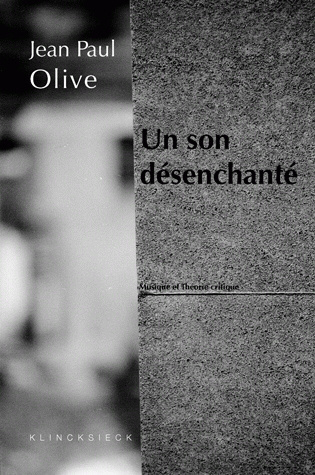In the 1960s, Adorno confided in a biographical note: "I've studied philosophy and music. Rather than choose between the two, all of my life I've had the feeling that I've been searching for the exact same thing in two divergent fields."
What, then, is this “same thing” which philosophy and music have so well conspired to dissimulate ? Adorno does not specify what it is and only an in-depth immersion in the philosopher's works may produce the answer: a wager, no less, which Jean-Paul Olive – attentive exegete, subtle reader and demanding interpreter of Adorno's work – so masterfully meets in these pages.
Yet in doing so, the author does not succumb to the enchantment of the Adornian dialectic. Determined to maintain a fair critical distance vis-à-vis a thought which nonetheless fascinates him, Jean-Paul Olive does not hesitate to challenge the intransigence of some of the Frankfurt-born thinker's positions. Through this clever approach, the author retains complete autonomy over his own text, Un son désenchanté, affording him even greater freedom to forcefully stress the timeliness of Critical Theory and the urgent need for a new interpretation of Theodor Adorno's works.
Jean-Paul Olive is a Professor in the music department of Université Paris 8, where he teaches musical analysis and aesthetics. He has written a book on the Alban Berg's work (Le tissage et le sens) and an essay on music and montage (Musique et montage - Essai sur le matériau musical au début du XXe siècle). He is the co-founding editor of the magazine Filigrane and currently heads the PhD programme in art aesthetics, sciences and technologies at Université Paris 8.




